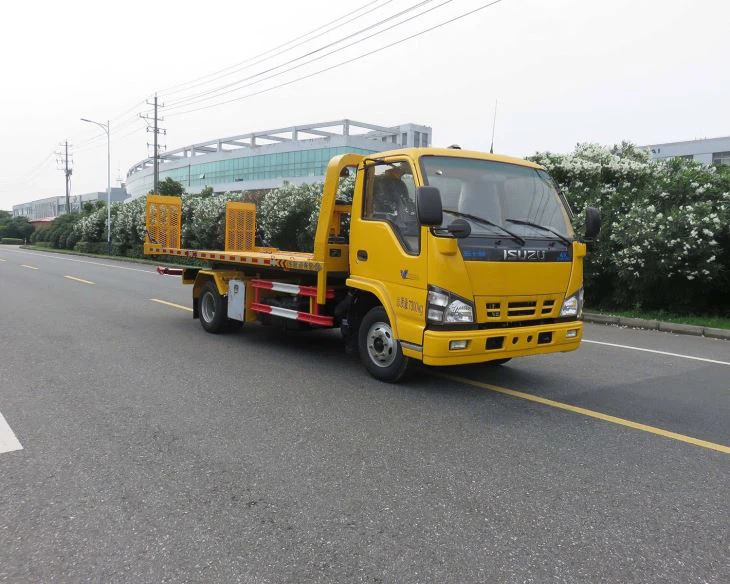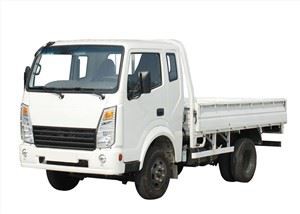Picking up trash is vital for maintaining clean and safe environments in our communities. A significant part of this operation revolves around the trucks used for waste collection. In this article, we will delve into the various types of trucks used for picking up trash, their features, operational efficiency, and best practices to optimize waste management. From commercial to municipal applications, this guide will cover everything you need to know.
Understanding Waste Management and Collection Trucks
Waste management is an essential service that involves the collection, transportation, processing, and disposal of waste materials. The core of waste management operations lies in the vehicles used to perform these functions—trucks designed specifically for picking up trash. Understanding the various types of trucks available is crucial for municipalities and companies looking to optimize their waste collection processes.
Types of Trucks for Trash Collection
Several types of trucks are dedicated to trash collection. Each type has unique features that make them suitable for particular tasks in waste management. Below are the primary types:
1. Front Loaders
Front loader trucks are designed with a large, front-mounted hydraulic system that lifts dumpsters. These vehicles are ideal for commercial waste collection. Key features include:
- Capacity: Typically holds between 20 to 30 cubic yards of waste.
- Efficiency: Fast and optimal for servicing multiple locations.
- Durability: Built to handle rugged conditions.
2. Rear Loaders
Rear loader trucks have an opening at the back for garbage collection. These trucks are frequently used for residential waste pickup. Key features include:
- Capacity: Usually holds around 18 to 25 cubic yards.
- Compact Design: Allows for easier maneuverability in tighter spaces.
- Accessibility: Easy access for waste collectors to dump trash.
3. Side Loaders
Side loader trucks collect trash from the side, utilizing advanced automated systems. They are often employed in urban areas for residential pickups. Their features include:
- Automation: Reduces the need for manual labor, enhancing productivity.
- Capacity: Similar to rear loaders, accommodating 20 to 30 cubic yards.
- Safety: Minimizes worker injuries associated with manual trash collection.
4. Roll-Off Trucks
These specialized trucks transport large containers or “roll-off” boxes that can be filled with various types of waste. They are best for construction and renovation projects. Key features include:
- Versatility: Can be used for different types of waste materials.
- Capacity: Can handle 10 to 40 cubic yards, depending on the container size.
- Adaptability: Easily scalable to meet project demands.
Choosing the Right Truck for Your Needs
When selecting a truck for trash collection, several factors should be considered:
1. Type of Waste
Different types of waste, such as household, construction debris, or recyclable materials, may require specific types of trucks.
2. Volume of Waste
Determine the average amount of waste generated to select a truck with adequate capacity.
3. Terrain and Accessibility
Evaluate the areas where trash collection will occur; some trucks perform better in urban, narrow, or rugged environments.
4. Budget and Cost of Ownership
Consider the purchase price, maintenance costs, fuel expenses, and operational efficiency to develop a comprehensive budget.
Operational Efficiency: Best Practices for Managing Trash Trucks
Enhancing the operational efficiency of trash trucks is essential for maximizing productivity and minimizing costs. Here are several best practices:
1. Route Optimization

Utilize route optimization software to plan efficient collection paths. This approach saves fuel and improves time management.
2. Regular Maintenance
Implement a scheduled maintenance routine to ensure the reliability and longevity of the trucks. This includes regular checks on engines, brakes, and hydraulic systems.
3. Driver Training
Invest in training programs for drivers to enhance driving efficiency and ensure safety protocols are followed during operations.
4. Utilize Technology
Incorporate technology such as GPS tracking systems and mobile apps to monitor fleet performance in real-time.
Case Study: Successful Waste Management Practices
Examining successful implementations of waste management can yield valuable insights:
Example: Seattle’s Waste Management System
Seattle has implemented a city-wide waste management system that utilizes a mix of front loaders and side loaders to optimize collection. This program includes:

- Automated Collection: A significant portion of the collection is performed by automated side loaders.
- Recycling Programs: The city encourages recycling with designated containers for waste, making the collection process efficient.
Environmental Considerations for Trash Trucks
As the environmental impact of waste management becomes a concern, selecting eco-friendly trucks is essential. Here are some eco-conscious choices:
Alternative Fuel Options
Consider trucks that use alternative fuels such as compressed natural gas (CNG) or electricity. These options produce fewer emissions compared to traditional diesel trucks.
Recycling and Waste Reduction Strategies
Implementing strategies that prioritize recycling can reduce the volume of waste needing collection. Establish programs to educate communities on recycling practices.
Innovations in Waste Collection Technology
Keep an eye on new technologies in the waste management field. Innovations such as robotic waste collection systems and advanced sorting machines can enhance efficiency and sustainability.
Conclusion
Successfully managing waste in communities requires understanding the various trucks available, their functionalities, and best practices in operational efficiency. By using the right equipment and techniques, municipalities and waste management companies can ensure a cleaner, more sustainable environment for everyone.
FAQs
1. What type of truck is best for residential waste pick-up?
The best truck for residential waste collection is typically a rear loader or a side loader due to their compact design and ease of access.
2. How often should waste collection trucks be maintained?
Regular maintenance should be performed based on manufacturer recommendations, typically every 3,000 to 5,000 miles or every few months, whichever comes first.
3. Can recycling materials be picked up with regular trash collection trucks?
Yes, some waste collection trucks are equipped for dual purposes and can handle both recycling and regular waste, but it is essential to have separate containers for effective sorting.
4. What are the benefits of automated waste collection trucks?
Automated waste collection trucks enhance efficiency, reduce workplace injuries, and lower labor costs.
5. Are there environmentally friendly options available in trash collection trucks?

Yes, many manufacturers are offering trucks that run on alternative fuels, such as compressed natural gas (CNG) or electricity, which have a lower environmental impact.
6. What is the typical lifespan of a waste collection truck?
The average lifespan of a waste collection truck can range from 10 to 15 years with proper maintenance and care.